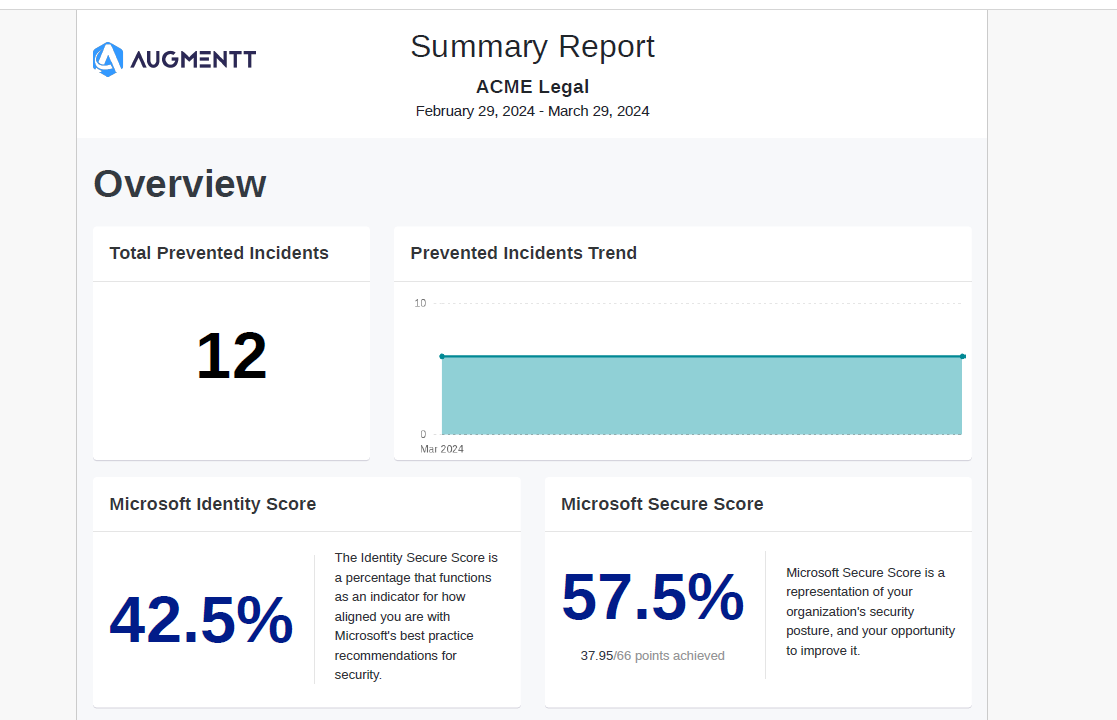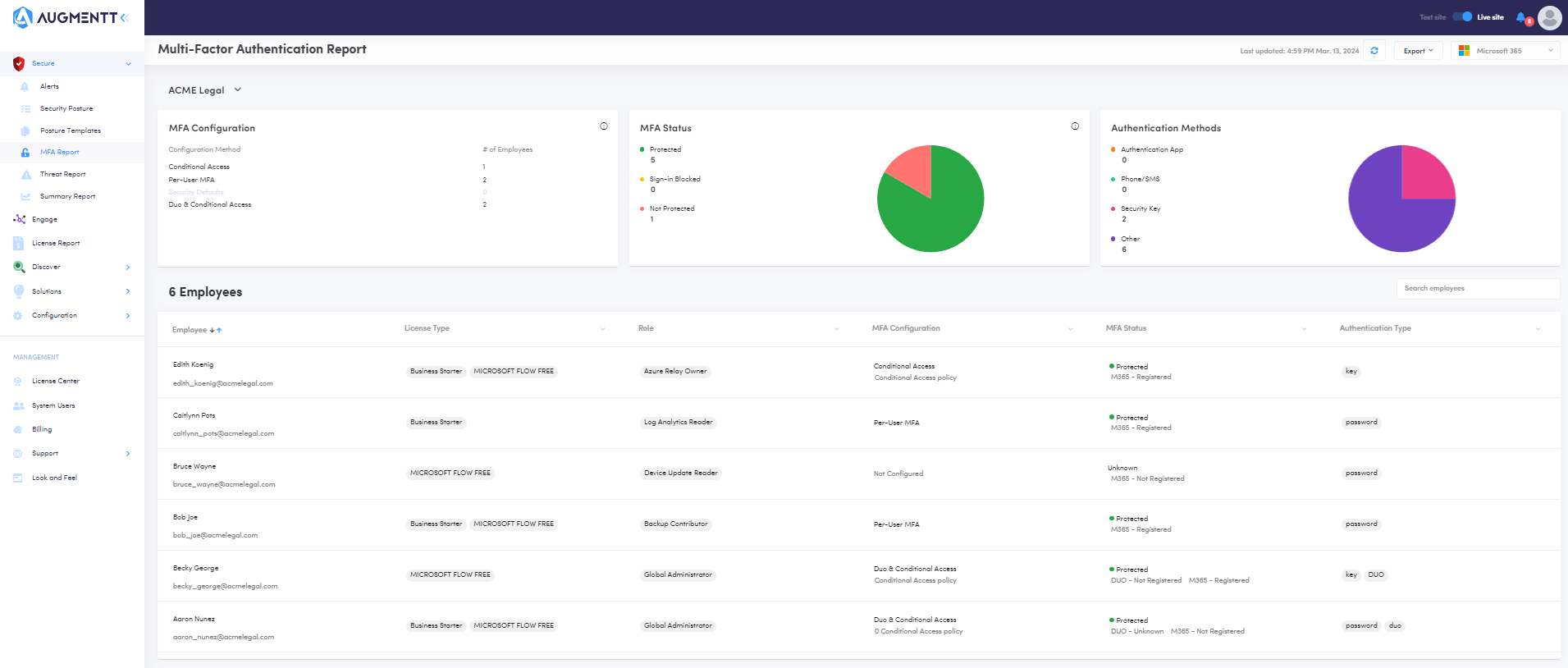M365 Security Service: What's included?
Since Microsoft 365 is the most targeted application globally, securing your most critical business asset is imperative. Invest in additional security services to safeguard your M365 environment effectively.
- MFA Audit and Management: Ensuring compliance and maintaining M365 security standards.
- Security Posture Audit and Enforcement: This involves auditing and enforcing Microsoft’s best security practices to enhance proactive security measures across all tenants.
- Enhanced Threat Alerting: Promptly identifying and responding to emerging threats, complementing proactive security measures.
- Help Desk Efficiency: Technicians or in-house IT personnel should be given the least privileged access, streamlining support processes.
Curious about How to Strengthen Your Microsoft 365 Security?
"The Why": Enhanced M365 Security Services
In an era of increasing digital threats and evolving security landscapes, ensuring the safety of your business data is crucial.
- Addressing Growing Complexity: Additional security services become essential as M365 security grows increasingly complex, requiring adaptation to recent changes within the platform.
- Microsoft 365’s Vulnerabilities: Given its status as the world’s most business-critical application, M365 becomes the most targeted, necessitating heightened security measures.
- Adapting to Evolving Threats: Microsoft has revamped its security offerings to combat evolving threats, emphasizing the need for businesses to adapt their security services accordingly. This includes transitioning to Granular Delegated Admin Privileges (GDAP), gating security with Microsoft Entra ID P1s and P2s, and prioritizing Conditional Access (CA) policy management for enhanced security (gated by P1).
- Vendor-Driven Changes: These shifts aren’t instigated by any specific platform but by Microsoft, which is migrating to GDAP, imposing security restrictions behind new licenses, and increasing security costs.
- Leverage Best Practices: Security hardening measures aligned with globally recognized standards like Center for Internet Security (CIS) M365 Foundations Benchmark to strengthen your security posture, provide threat visibility and improve compliance with regulations and security frameworks such as SOC 2 Type II, HIPPA, PCI and more.
Exploring the M365 Security Platform
Access Risk and MFA Overview
Compliancy Level and Auditing
Top M365 Security Concerns
Microsoft 365 is one of the most prevalent cloud service frameworks, with approximately 38% of businesses leveraging its features for enhanced functionality and seamless collaboration among workers regardless of location. However, as a core application housing detailed and sensitive data, it can present significant security concerns and enterprise risks.
Data Loss and Extraction
Microsoft 365 makes it easy to share files through apps like Outlook and Teams, but this also makes it easy for sensitive data to fall into the wrong hands. Hackers can use tools like Power Automate to steal important information, which could hurt a business’s finances and reputation. It’s essential to watch out for triggers like downloading multiple files at once, sending too much data, or sharing info through personal emails.
Administrative Account Breaches
Cyber attackers exploit administrator accounts in Microsoft 365 to gain elevated system access, potentially leading to data theft or unauthorized system alterations. Activating Multi-Factor Authentication (MFA) within the Security and Compliance Center can mitigate these risks, especially since MFA is initially disabled for global administrators.
Privilege Escalation
Organizations that give employees more access than they need without tailoring it to their specific roles raise serious security concerns. This can lead to access misuse or hackers exploiting vulnerabilities through stolen credentials. Establishing guidelines for external email forwarding and inbox rules to guard against these threats effectively is vital.
Credential Theft
Attackers commonly target Microsoft 365 user logins, has access to M365 accounts allows them to steal valuable data and conduct further attacks. They trick individuals into entering their details on fake Microsoft pages or use spyware to capture logins during computer sign-ins.
Bypassing Multi-Factor-Authentication (MFA)
While Microsoft 365 offers multi-factor authentication (MFA), cybercriminals can bypass it by exploiting loopholes such as outdated authentication methods and social engineering. Administrators must stay vigilant in recognizing deactivated MFA in M365 accounts.
Compromised Email Security
Attackers often use ransomware, spam, and phishing to compromise accounts, allowing them to gain control over systems and potentially execute Business Email Compromise schemes. This breach can result in substantial financial losses and harm the organization’s reputation due to fraudulent activities such as invoice interception and payment diversion.




